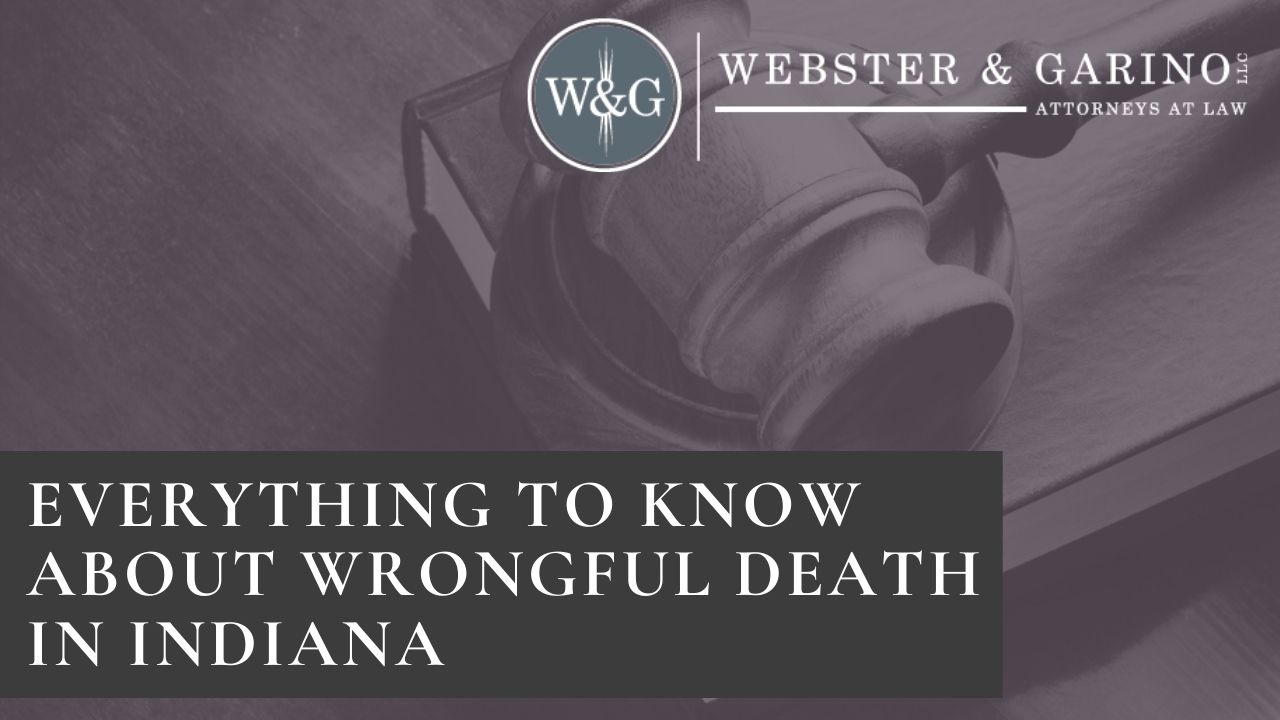Everything to Know About Wrongful Death in Indiana

In the State of Indiana, a wrongful death occurs when a person dies due to the wrongful actions, negligence, or carelessness of another person. Like other states, Indiana has its own set of state laws governing wrongful death claims. An experienced Indiana personal injury attorney can determine if your case qualifies as wrongful death and help you take legal action if it does.
How Does Indiana Define “Wrongful Death”?
Indiana has three distinct wrongful death statutes, with each providing for the recovery of different types of damages depending on which statute applies.
Indiana Code 34-23-1-1 establishes Indiana’s General Wrongful Death Statute, and provides for the recovery of damages on behalf of a decedent with dependents. The damages available under the general wrongful death statute include, but are not limited to, reasonable hospital, funeral, and burial expenses, loss of earnings of the decedent, and others. Any damages that are recovered go to the deceased person’s estate to repay medical and funeral bills, with any remaining damages going to the decedent’s heirs.
Indiana Code 34-23-1-2 establishes Indiana’s Adult Wrongful Death Statute. The Adult Wrongful Death Statute applies in any case where the deceased person was an unmarried individual who does not have any dependents and is not a child. When a deceased person falls under the definition of the Adult Wrongful Death Statute, the available damages include the same final costs as the General Wrongful Death Statute, as well as loss of an adult person’s love and companionship; however, damages for a person’s grief and punitive damages are expressly excluded. Finally, the Adult Wrongful Death Statute places a cap on the total amount recoverable for damages relating to loss of love and companionship in the amount of $300,000.00.
Indiana Code 34-23-2-1 establishes Indiana’s Child Wrongful Death Statute, which applies to unmarried individuals that are less than twenty years in age (or are less than twenty-three in age if enrolled in a postsecondary educational institution). Damages available under the Child Wrongful Death Statute include the standard final medical and funeral costs, as well as loss of the child’s services, loss of the child’s love and companionship, reasonable expenses for psychiatric/psychological counseling incurred by parents or minor siblings, and others. Unlike the Adult Wrongful Death Statute, there is no cap on the amount of damages recoverable for claims falling under the Child Wrongful Death Statute.
Who Can File a Wrongful Death Claim?
When a person is injured, their injury claims belong to them individually. In a wrongful death, the claimant is deceased, and therefore an estate must be created to take the decedent’s legal claims forward on behalf of the deceased person’s heirs. Often a specific kind of estate will be employed that is limited to bringing the wrongful death suit. When this state is opened, any qualified individual can be appointed to act as the estate’s personal representative, though the personal representative is typically a member of the deceased person’s immediate or extended family.
Regardless of who is appointed by the court to act as the estate’s personal representative, that personal representative must file a wrongful death lawsuit on behalf of the estate within two years of the date of the accident that ultimately caused the wrongful death.
If one of your loved ones has been the victim of a wrongful death accident, it is important to speak with a skilled personal injury attorney. At Webster & Garino, our Westfield lawyers are here for you in your family’s time of need. We are prepared to act quickly to secure evidence necessary to prosecute the claims, open an estate and commence appropriate legal action, and to otherwise be here for you and your family during your time of grief.
Learn about the types of auto accidents involved in personal injury cases.
